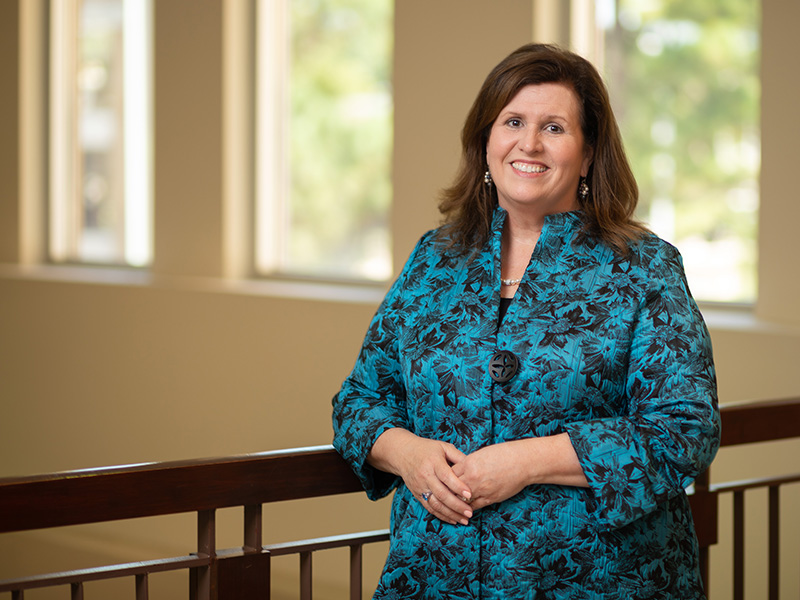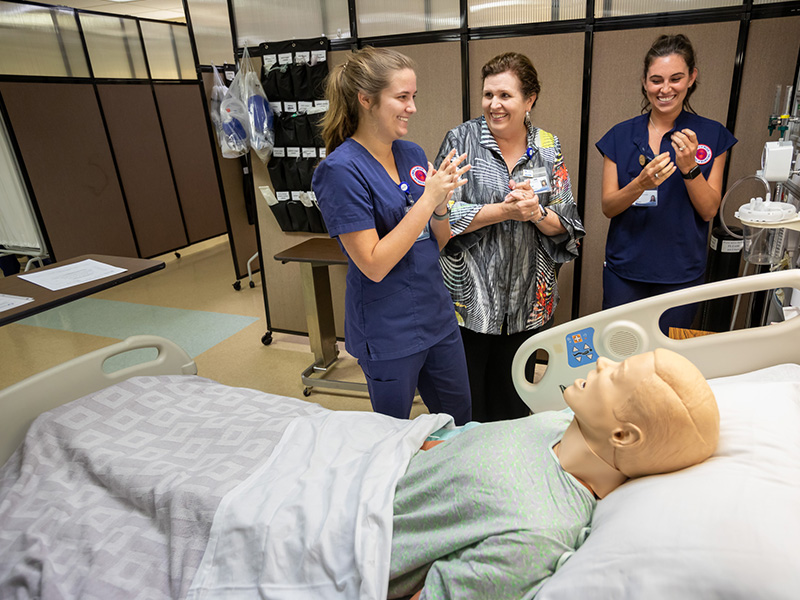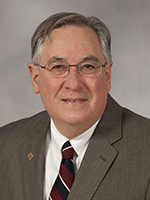New SON dean's goal: Prepare school for huge shift in nursing education

Dr. Julie Sanford, the new dean of the University of Mississippi School of Nursing, does not hesitate when asked what her vision for the school is.
Despite having only been here less than two months, during which she has dealt with many immediate, pressing issues, she is keeping her eyes on the prize.
“My vision for the School of Nursing is to be a leader in Mississippi in nursing education, research and practice, as well as in the region and nation, and to be known for quality programs and outstanding research and practice initiatives,” Sanford, who previously served as director of James Madison University’s School of Nursing since 2011, said.
She has a clear perspective of both the school’s existing strengths and its potential, and as a self-described “goal-oriented person,” she is determined to maximize those strengths and realize that potential.
While Sanford is currently knee-deep in an organizational assessment, which involves meeting with all faculty and staff to identify their goals and objectives, she intends to begin serious strategic planning in January to ensure the School rises to this vision.

She has proven success in reaching goals: she oversaw the transition from department to school status while at James Madison and increased enrollment in the Bachelor of Science Nursing program by over 50 percent, making it the highest enrolled major on campus.
She has over $7 million in federal Health Resources and Services Administration funding and was named co-principal investigator of the $2.7 million HRSA-funded Undergraduate Primary Care and Rural Education Project at JMU last academic year.
Sanford has been recognized on the national level for her achievements. In 2017, she was designated as a fellow in the American Academy of Nursing, a title held by only 2,400 nursing professionals recognized for their accomplishments as leaders in education, management, practice and research.
Most recently, she was elected to the Board of Directors for the American Association of Colleges of Nursing in which she has been an active and involved member for 8 years. The AACN is the national voice for academic nursing, working to establish nursing education standards and to help schools implement the standards.
Sanford’s work with the AACN makes her privy to a sea change coming to the world of nursing education: the revision of the AACN’s essentials documents, or the documents that outline what is required content for each degree program in nursing, she said.
“I’ve been in nursing education since 1993 and I’ve never seen a larger shift coming,” said Sanford.
“Instead of a list of content, it’s going to be (measured) in competencies. Instead of saying, for example, you need to discuss evidence-based practice, it will say the student must demonstrate mastery of evidence-based practice,” she continued. “This is a paradigm shift for us in nursing, so we’re going to have to change how we teach and how we asses from knowledge acquisition to mastery of competencies.”
Sanford said she is already having discussions about how to prepare faculty for the transition and has put together a faculty development task force to address this and other issues. She’s also placed one priority very high on her list.
“More than ever the use of simulation labs needs to be done in such a way that we’re using best practices and following the guidelines and standards of INACSL (International Nursing Association for Clinical Simulation and Learning),” she said. “We have to have adequate labs.”
Sanford’s goal-oriented approach and know how is what drew administrators to her as a candidate for the dean position.

“We were seeking a forward-thinking nursing educator. In Dr. Sanford we found exactly that,” said Dr. Ralph Didlake, associate vice chancellor for academic affairs and chief academic officer at UMMC. “She has deep experience not only in managing the details of a modern school of nursing but also in developing collaborations that help put well-trained nurses in the field caring for patients. We are confident that she will bring balance, growth and innovation to the education, service and research missions of the School of Nursing.”
Sanford is passionate about the work that lies ahead of her for two primary reasons.
“I was drawn to UMMC because it’s an academic health center, and in those settings, there is a close partnership between academic nursing and practice, or clinical nursing,” she said. “ … Also the research. You’re just able to translate research into practice a little quicker, and I find that really exciting and impactful because it’s not just a theoretical thing that you teach … it is practice. At the heart of our discipline is practice.”
Sanford also feels a calling to serve the people of Mississippi because she was born in Lucedale, where some of her family still live.
“I have a real sense of mission and service to the people of Mississippi,” she said. “I wanted to give back and increase access to health care and have some impact through the educational preparation of the nursing workforce – whether that be through educational opportunities, developing researchers or expert clinicians.”
Sanford and husband, an auditor with Blue Cross and Blue Shield of South Carolina, have three grown sons, two daughter-in-laws, a granddaughter and enjoy living on the Reservoir.


